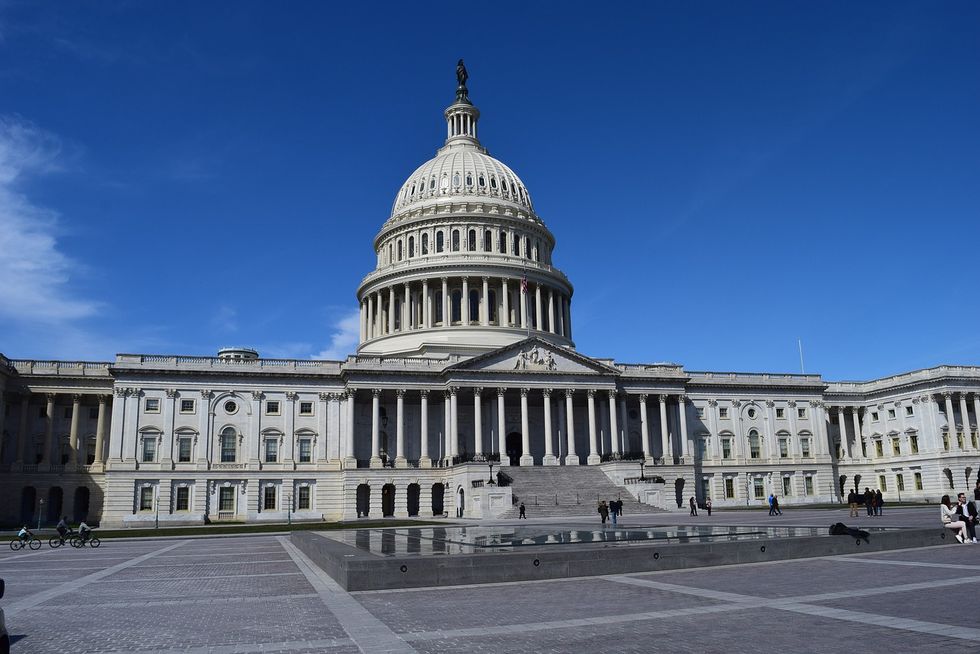John Adams once said that “Without term limits, every man in power becomes a ravenous beast of prey.” I really don't think he knew today how true his words would be over two-hundred years later.
As of 2015, the United States Senate contained approximately 36 members that had been in office for more than thirty years. In our three branches of government today, there are currently no term limits for vice-president’s, senators, representatives and Supreme Court justices.
In addition, there are currently 14 states in the union that have no requirement for strict term limits for governors. It just so happens that South Carolina is also one of these states that tends to “cheat” the system when it comes to gubernatorial term limits (SC allows for governors to serve two consecutive terms and they only have to sit out one four year term before they are eligible to run again).
It is easy to say that any attempt to introduce legislation on term limits is an uphill battle, but is it really as difficult as everyone thinks it is?
According to a Gallup poll that was conducted in September of 2009, 75% of Americans found that corruption in our government is widespread. That figure rose by nine percent from a previous poll that was conducted the year before, which had 66% of Americans thinking the government is corrupt. Additionally, a Gallup poll that was conducted in January of 2013 similarly found that 75% of Americans supported term limits for Congress. This is evidence that a majority of the population agrees that term limits would be useful for our elected officials.
Serving too long in office can propose mental and physical disabilities for our elected officials. Job-related stresses already have serious consequences; such as hypertension and cardiovascular disease. The same consequences can be true for service in public office.
The life of a politician is one that requires long hours, the stresses of campaigning and fundraising and the constant pressure of being in the public eye. These mental and physical hindrances can affect politicians, who are the ones that are responsible for drafting, proposing and advocating for some of the most important issues in our nation.
The fact that some politicians may become over-worked and burnt out is not the only reason that our Constitution needs a system of term limits. Another, even more important reason that there needs to be term limits is because these “career politicians” have had a heavy impact on how Americans view and trust our government.
Without term limits, people have lost their trust in government from the lack of “citizen legislators” serving in office today. The Founding Fathers never intended citizens to go to Washington for multiple decades to make careers out of their role serving the people. Few of these politicians have ever fulfilled any other role in society other than a life of politics. Due to the fact that they have only ever “served” in Washington, they are more disconnected from the people they serve now more than ever.
Many Americans also do not trust the people that are elected to represent them in Congress because they make a significant amount more than do most average Americans. In the 1800’s the average salary of a member of Congress was around $19,000. Today, a regular member of the U.S. Senate or the U.S. House of Representatives makes approximately $174,000 (not counting allowances given for district offices, salaries for congressional staff, etc.)
The average salary for a middle-class American is around $55,000 a year, in turn, this means that a member of Congress makes 31.6% more than the constituent that they were voted to represent.
Politicians are an essential piece of our form of government today. Without our elected officials, we would have no one to make laws that better our lives as citizens.
It is true, though, that no one needs to spend decades upon decades in office. This time in office without appropriate term limits leads to a deterioration of our leader’s well-being and health, an overall public distrust in our government and these career politicians using their titles and office to benefit from personal gain.
As Bob Inglis once put it, “Asking an incumbent member of Congress to vote for term limits is like asking a chicken to vote for Colonel Sanders.” Just know that you are not alone when you think something seems a little fishy in our government about these people being there in office before you were born!




 Energetic dance performance under the spotlight.
Energetic dance performance under the spotlight. Taylor Swift in a purple coat, captivating the crowd on stage.
Taylor Swift in a purple coat, captivating the crowd on stage. Taylor Swift shines on stage in a sparkling outfit and boots.
Taylor Swift shines on stage in a sparkling outfit and boots. Taylor Swift and Phoebe Bridgers sharing a joyful duet on stage.
Taylor Swift and Phoebe Bridgers sharing a joyful duet on stage.













